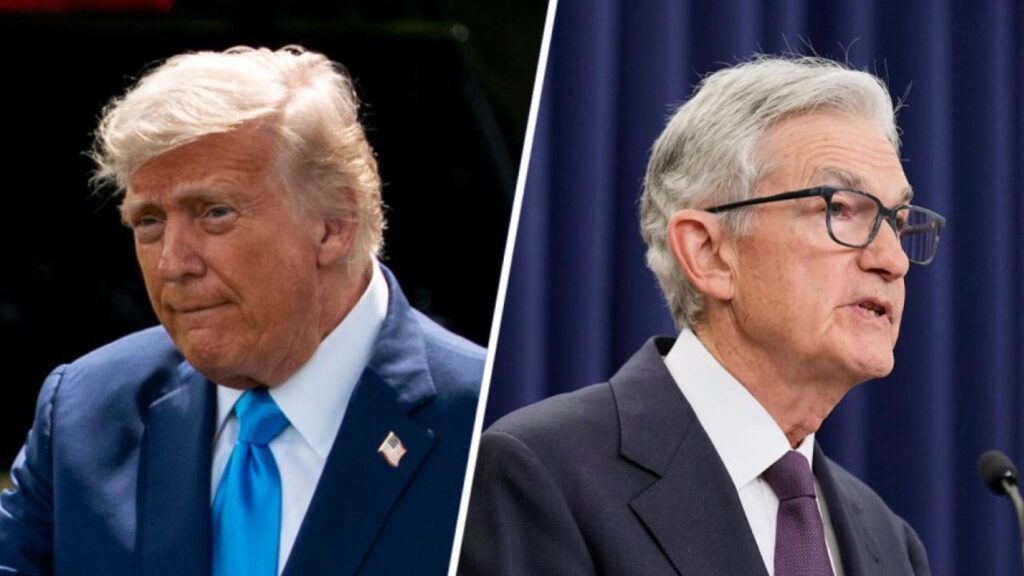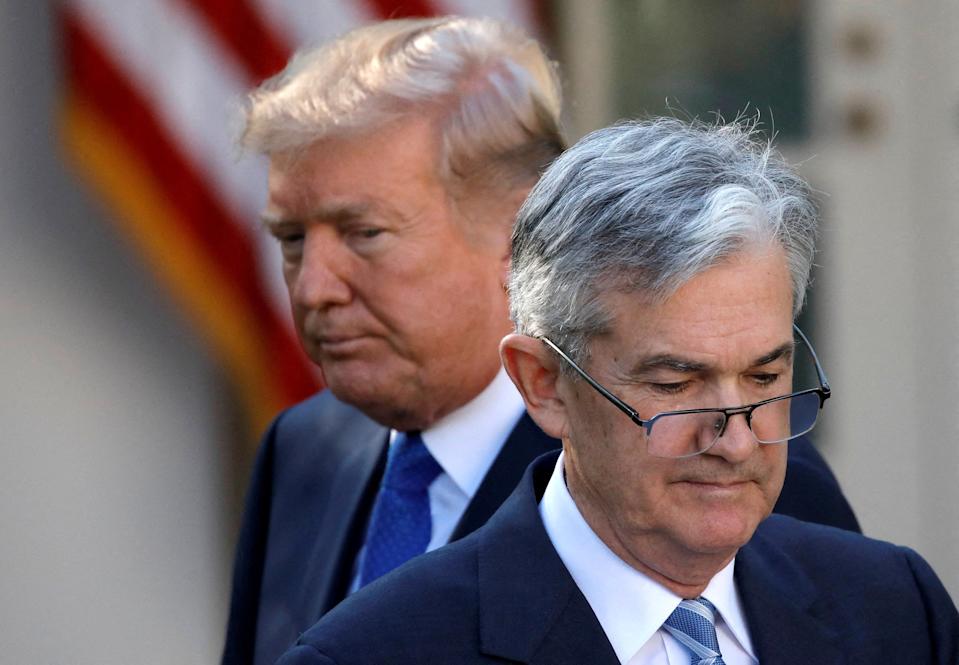The U.S. economy is at a crossroads as former President Donald Trump’s rhetoric and Republican leaders’ fiscal mismanagement have pushed the Federal Reserve into a high-stakes battle over national debt. While the Fed typically steers clear of political discourse, it now finds itself embroiled in a precarious situation, where its policies directly affect the government’s financial stability. With GOP factions at odds over how to address the mounting debt, this conflict is transforming from an economic issue into a political powder keg.

The pressure on the Federal Reserve is mounting as political gridlock in Washington hampers attempts to manage the nation’s fiscal health. Trump’s leadership in the GOP, combined with partisan chaos, is testing the limits of economic policies, and the Federal Reserve is increasingly in the spotlight. As this showdown continues, the Fed’s actions will either mitigate or escalate the debt crisis—a process fraught with political implications that could define the future of U.S. fiscal policy.
Trump Forces Fed Into High-Stakes Debt Battle
| Insight | Stat/Detail |
|---|---|
| Trump’s rhetoric has deepened the GOP’s fiscal divide. | Over 70% of Republicans say national debt is critical, yet remain divided on solutions. |
| Fed’s role is growing in the debate over debt management. | The Fed’s actions will directly influence inflation and borrowing costs. |
| GOP factions remain unable to agree on fiscal policy direction. | Divisions in the GOP over spending cuts and tax policies. |
Trump’s Influence on the Republican Party’s Fiscal Chaos
Since his presidency, Donald Trump has remained a dominant figure within the Republican Party, shaping its rhetoric and direction, especially regarding fiscal policy. Despite stepping down from office, Trump continues to have a profound influence on GOP policies, particularly surrounding the national debt and government spending. His often polarizing statements have further strained the already fragile unity within the party, exacerbating tensions between conservative factions.
On one side, there are Republicans who push for fiscal conservatism, advocating for deep cuts in government spending to reduce the ballooning national debt. On the other side, Trump’s influence, which emphasizes tax cuts and military spending, creates a significant divide. The absence of a unified approach to fiscal policy among Republicans is complicating any realistic plans to curb the debt.
The Federal Reserve’s Response
As the U.S. national debt edges closer to unsustainable levels, the Federal Reserve is being thrust into a more active role in managing the nation’s finances. Traditionally, the Fed avoids political entanglements and focuses on stabilizing prices and maximizing employment. However, the challenges posed by rising debt and inflation have pushed the Fed into an uncomfortable spotlight, particularly as its actions—like interest rate hikes—directly impact government borrowing costs.
The Federal Reserve’s decisions are often seen as pivotal in managing inflation and stabilizing the economy, but with the national debt soaring, every move the Fed makes is now scrutinized. When the Fed raises interest rates to combat inflation, it also increases the government’s cost of borrowing, further exacerbating the debt crisis. Conversely, keeping interest rates low could allow more borrowing but risks fueling inflation, leaving the Fed with a tough balancing act.
Republican Fiscal Infighting: A Barrier to Action
With Trump’s hold on the GOP intact, the party’s approach to fiscal policy remains fragmented. Congressional Republicans have been unable to agree on a unified strategy to address the ballooning national debt. Some factions call for dramatic cuts to social programs, while others—often aligning with Trump’s view—push for increased defense spending and tax cuts for corporations and wealthy Americans.
The GOP’s inability to reach a consensus on these issues has made it nearly impossible to implement a comprehensive debt reduction plan. This disarray within the party has not only impacted its ability to govern but has created a fiscal crisis that spills over into economic policies and national stability.

A High-Stakes Debt Showdown
The ongoing debt showdown presents high stakes for both the U.S. economy and the Federal Reserve. As the nation approaches the debt ceiling and fiscal limits, a potential government shutdown looms. The consequences of a shutdown could range from halted government operations to severe market instability. A default on government debt, although unlikely, would send shockwaves through the global financial system, leading to higher borrowing costs and loss of investor confidence.
In this environment, the Federal Reserve faces its most difficult challenge in decades. With inflation concerns still looming large, the central bank must balance its role in managing economic growth without exacerbating the debt crisis. Fed Chair Jerome Powell has expressed concerns over the rising fiscal deficit and the long-term risks of excessive government borrowing. However, with limited tools at its disposal, the Fed is in a tight spot.
Potential Outcomes: A Debt Crisis or Economic Reset?
Looking ahead, the conflict between Trump, the GOP, and the Federal Reserve could lead to one of two outcomes: either a financial collapse driven by the unmanageable national debt or a major economic reset with comprehensive fiscal reforms. The former seems increasingly likely given the GOP’s lack of unity on fiscal policy. However, the latter would require bipartisan cooperation, a challenging feat in today’s polarized political landscape.
One thing is clear: the actions of both Trump and the Federal Reserve will play a pivotal role in determining the future of America’s fiscal health. As the economy faces these challenges, the nation must reckon with the consequences of its choices—and the political gridlock that continues to exacerbate them.
Why the GOP Must Act Now
For Republicans, the time to address the national debt is now. Failure to take decisive action risks both economic disaster and further erosion of public trust. With the Federal Reserve caught in the crossfire, GOP leaders must find a way to move beyond their internal divisions and come together to forge a sustainable fiscal path.
While Trump’s influence remains strong, the question is whether the GOP can break free from its entanglement with his personal brand of politics and focus on long-term solutions. If the party does not take concrete steps to balance fiscal responsibility with economic growth, it risks driving the nation into deeper financial turmoil. The choices made today will echo for years, shaping the future of both the economy and the political landscape.
FAQs
What role does the Federal Reserve play in managing the national debt?
The Federal Reserve manages inflation and stabilizes the economy. Its policies, like interest rates, directly affect government borrowing costs, which can either ease or worsen the debt crisis.
How does Donald Trump influence Republican fiscal policy?
Trump’s support for tax cuts and increased military spending has deepened divides within the GOP. Some factions push for spending cuts, while others align with Trump’s priorities, creating a fragmented approach to addressing national debt.
What could happen if the U.S. defaults on its debt?
A U.S. default would lead to higher borrowing costs, loss of investor confidence, and potential market instability. It would also harm the U.S. credit rating and lead to severe economic consequences.






